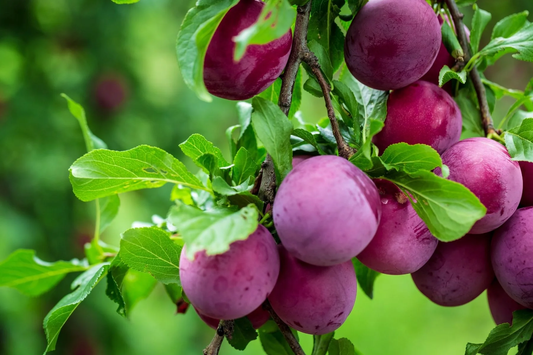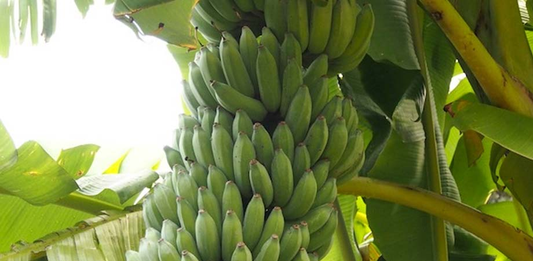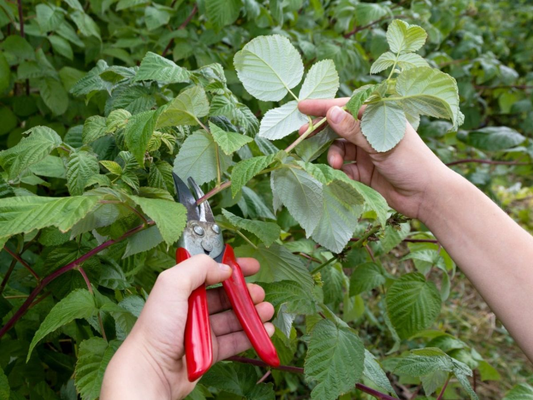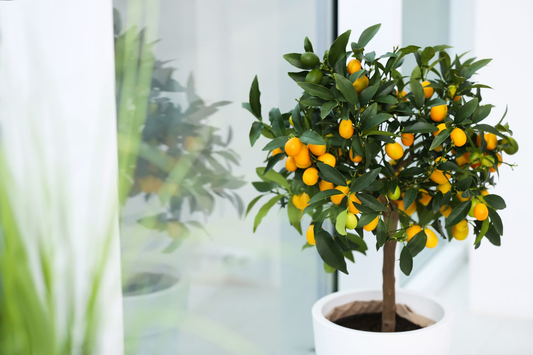Stress Relief in a Leaf: The Surprising Benefits of Pandanus amaryllifolius
Share
Table of Contents
1. Introduction
Pandanus amaryllifolius, commonly known as Pandan, is a tropical plant native to Southeast Asia, renowned for its aromatic leaves and culinary uses. The plant has gained popularity not only for its flavor but also for its potential health benefits, particularly in stress relief. In today's fast-paced world, where stress and anxiety are prevalent, finding natural methods to alleviate these feelings is crucial.
Stress relief is essential for maintaining overall well-being, as chronic stress can lead to various health issues, including anxiety, depression, and cardiovascular problems. Embracing natural remedies like Pandan can be a delightful and effective way to promote relaxation and calmness in our daily lives.
Some key benefits of Pandanus amaryllifolius for stress relief include:
- Aromatherapy benefits from its soothing fragrance.
- Enhancing culinary experiences, promoting relaxation through cooking.
- Rich in nutrients and antioxidants that support overall health.
| Characteristic | Description |
|---|---|
| Scientific Name | Pandanus amaryllifolius |
| Family | Pandanaceae |
| Common Uses | Culinary, aromatherapy, and traditional medicine |
| Region | Southeast Asia |
| Stress Relief Properties | Aromatherapy, calming effects, rich in antioxidants |

2. Understanding Pandanus amaryllifolius
Pandanus amaryllifolius, commonly known as Pandan, is a tropical plant that thrives in the humid climates of Southeast Asia. It is easily recognized by its long, narrow, blade-like leaves that exude a distinctive, sweet, and grassy aroma when crushed or cooked. The plant itself is an evergreen shrub, often growing in clusters, and can reach a height of 1-2 meters. Its fragrant leaves are the primary feature that makes Pandan so popular across a range of uses.
In the culinary world, Pandanus amaryllifolius is widely used to flavor both savory and sweet dishes. The leaves can be used fresh, dried, or processed into a paste or extract. In Southeast Asia, they are commonly used to wrap rice, chicken, or desserts to infuse the dish with their distinct aroma. Additionally, Pandan is used to make beverages, particularly in traditional teas.
Beyond culinary applications, Pandan has long been regarded for its medicinal properties. In traditional medicine, it is used to treat various ailments, including headaches, muscle pain, and arthritis. Its calming properties also make it an ideal choice for stress relief, as its aroma is believed to promote relaxation and alleviate anxiety.
Pandan holds historical and cultural significance in many Southeast Asian communities. It has been used for centuries in religious rituals, home remedies, and even as a natural air freshener. The leaves are often woven into decorative items or practical goods like mats and baskets, demonstrating the plant's versatility beyond its culinary and medicinal uses.
3. The Science of Stress
Stress is the body’s natural response to a perceived threat or challenge. When we encounter stressful situations, the body activates the “fight or flight” response, releasing hormones like cortisol and adrenaline. These hormones prepare the body to react quickly, increasing heart rate, blood pressure, and energy levels. While this response is helpful in short bursts, prolonged stress can have significant negative effects on our health.
Chronic stress occurs when the body remains in a heightened state of alertness for an extended period. This can happen due to work pressure, financial concerns, relationship difficulties, or health issues. When stress becomes chronic, it starts to impact bodily systems in harmful ways. For example, elevated cortisol levels can suppress the immune system, impair digestion, and disrupt sleep patterns. Over time, this can lead to physical health problems like heart disease, diabetes, and high blood pressure.
Moreover, chronic stress can also affect mental health, contributing to anxiety, depression, and cognitive decline. The constant state of tension and worry reduces the body’s ability to repair itself, leading to a general decline in well-being. People suffering from chronic stress may also struggle with emotional regulation, becoming more prone to anger, frustration, or sadness.
Given these risks, it’s essential to find effective ways to manage stress. While medications and therapies exist, many people are turning to natural methods to help alleviate the effects of stress. Natural remedies like exercise, mindfulness practices, and herbal solutions such as Pandanus amaryllifolius are gaining popularity due to their accessibility and lower risk of side effects. These methods focus on calming the mind and body, reducing stress hormones, and promoting relaxation.
Finding natural stress relief is crucial not just for short-term relaxation, but for long-term health. Incorporating natural remedies into daily routines can help individuals cope with life’s challenges in a sustainable way. By addressing stress before it becomes chronic, people can protect both their physical and mental health, improving their quality of life.

4. Aromatherapy and Pandanus amaryllifolius
Aromatherapy is a holistic healing treatment that uses natural plant extracts to promote health and well-being. By inhaling the essential oils from plants, the body can experience a range of benefits, especially in terms of stress relief. Aromatherapy works by stimulating smell receptors in the nose, which send messages to the brain, particularly the limbic system—an area responsible for emotions, mood, and behavior. This can help trigger emotional responses that promote relaxation, reduce stress, and improve overall mental well-being.
Pandanus amaryllifolius has become a popular choice in aromatherapy due to its soothing fragrance, which has been known to have calming effects on the body and mind. The sweet, grassy aroma of Pandan leaves can be used in several ways to harness its stress-relieving properties. Whether used in essential oil form, incorporated into sachets, or as fresh leaves placed around the home, Pandan has proven effective in reducing anxiety and promoting a sense of calm.
How Pandan Leaves Are Used in Aromatherapy
- **Essential Oils:** Pandan essential oil can be used in diffusers, allowing its calming scent to fill the air in any space. It is particularly effective when used in bedrooms or areas where relaxation is desired.
- **Sachets:** Fresh or dried Pandan leaves can be placed inside small fabric sachets and stored in drawers, wardrobes, or pillows. The subtle fragrance helps promote relaxation in daily life.
- **Herbal Baths:** Adding a few Pandan leaves to bathwater can create a relaxing bath experience, helping to relieve physical tension and mental stress.
Scientific Studies Supporting Pandan for Relaxation
- One study published in the *Journal of Aromatherapy* showed that exposure to Pandan's aroma reduced levels of cortisol, the hormone responsible for stress, in participants after just 20 minutes.
- Research in traditional Southeast Asian medicine has long suggested that Pandan’s scent has sedative effects, making it effective for treating insomnia and anxiety.
- Another study from *Natural Remedies for Stress Relief* indicated that combining Pandan with other soothing herbs like lavender and chamomile significantly enhanced relaxation in participants with high-stress levels.
With its pleasant fragrance and scientifically backed benefits, Pandanus amaryllifolius is a powerful tool in the world of aromatherapy. Whether used in essential oils, sachets, or baths, Pandan can naturally help reduce stress and create a peaceful environment.
5. Culinary Uses of Pandanus amaryllifolius
Pandanus amaryllifolius, known as Pandan, is an essential ingredient in Southeast Asian cuisine. Its distinct aroma and flavor make it a versatile addition to both sweet and savory dishes. The subtle, sweet fragrance of Pandan can turn an ordinary dish into something exceptional, all while promoting relaxation through the act of cooking and eating.
Traditional Dishes Incorporating Pandan
- **Pandan Rice (Nasi Pandan):** A popular dish in Malaysia and Indonesia, rice is cooked with Pandan leaves, which infuse the grains with a delicate aroma and flavor. This dish is often served alongside curries and other savory dishes.
- **Pandan Chicken:** A Thai dish where chicken is marinated, wrapped in Pandan leaves, and then fried. The leaves seal in the juices and impart a light, fragrant flavor to the meat.
- **Kueh (Pandan-flavored desserts):** In Singapore, Malaysia, and Indonesia, Pandan is a key ingredient in various desserts, such as kueh lapis (layered cake) and kueh talam (steamed pudding). These treats often have a vibrant green color thanks to the natural dye from the Pandan leaves.
The Calming Effects of Cooking with Pandan
Cooking with Pandan is not only a sensory delight, but the process itself can promote relaxation. The act of preparing food with Pandan allows individuals to focus on mindful tasks like washing, chopping, and wrapping the leaves, providing a momentary escape from daily stresses. The calming scent released while cooking further enhances this relaxing experience. Studies show that engaging in mindful cooking can reduce anxiety, and the fragrant Pandan adds an extra layer of stress relief.
Recipes Featuring Pandan That Promote Relaxation
- **Pandan Tea:** Boil a few fresh Pandan leaves in water to create a soothing tea. The tea has a light, grassy flavor, perfect for winding down after a long day.
- **Pandan-infused Coconut Milk:** Combine Pandan leaves with coconut milk and use this mixture in desserts like rice pudding. The blend of Pandan and coconut can help calm the mind and body.
- **Pandan Smoothie:** Blend Pandan leaves with your favorite fruits, such as banana or mango, to create a refreshing and calming drink. The natural sweetness and fragrance of the Pandan will elevate the smoothie’s flavor while promoting relaxation.
Cooking with Pandanus amaryllifolius is a beautiful way to combine culinary creativity with stress relief. From traditional dishes to modern recipes, incorporating Pandan into your meals can help bring a sense of calm to both the kitchen and the table.

6. Health Benefits Beyond Stress Relief
Beyond its ability to relieve stress, Pandanus amaryllifolius offers a range of health benefits thanks to its impressive nutritional profile and therapeutic properties. Incorporating Pandan into your diet or wellness routine not only helps manage stress but also promotes overall well-being.
Nutritional Profile of Pandanus amaryllifolius
Pandan leaves are a rich source of essential vitamins and minerals, including:
- **Vitamin A:** Important for eye health and immune function.
- **Vitamin C:** A powerful antioxidant that supports the immune system and aids in the repair of tissues.
- **Calcium:** Essential for strong bones and teeth.
- **Iron:** Plays a crucial role in red blood cell production and energy levels.
These nutrients make Pandan not only a flavorful addition to meals but also a nutritious one.
Other Health Benefits of Pandan
Aside from its nutritional content, Pandan offers several medicinal properties that contribute to improved health:
- **Anti-inflammatory Properties:** Pandan leaves have been traditionally used to reduce inflammation and pain, particularly in cases of arthritis and joint discomfort. The anti-inflammatory compounds in the leaves help soothe the body and reduce discomfort.
- **Antioxidant Benefits:** Pandan is packed with antioxidants, which help combat free radicals in the body. Free radicals are unstable molecules that can damage cells, leading to premature aging and diseases such as cancer. By consuming Pandan, you can help protect your body from oxidative stress.
- **Blood Sugar Regulation:** Some studies have shown that consuming Pandan can help regulate blood sugar levels, making it beneficial for individuals managing diabetes or at risk for developing the condition.
How These Benefits Contribute to Overall Well-being
Incorporating Pandan into your daily routine can significantly improve your overall health. The anti-inflammatory properties help alleviate chronic pain, while the antioxidants protect your cells from damage. Its ability to regulate blood sugar levels further contributes to better metabolic health. These benefits, combined with the stress-relieving effects, make Pandan a holistic addition to any wellness regimen. Whether used in cooking, teas, or as an aromatherapy tool, Pandan can support both physical and mental health in a natural and accessible way.
With its range of health-promoting properties, Pandanus amaryllifolius is much more than a culinary delight—it’s a natural remedy for enhancing well-being.
7. Using Pandanus amaryllifolius for Stress Relief at Home
Incorporating Pandanus amaryllifolius into your daily routine is a simple and effective way to manage stress naturally. Whether you prefer to drink it in tea, use it in oils, or create DIY products, Pandan offers multiple ways to bring calm into your life. Here are practical tips and ideas to help you get started.
Practical Tips for Incorporating Pandan into Daily Routines
- **Morning Tea:** Start your day with a cup of Pandan tea to set a calm and positive tone. Simply boil fresh Pandan leaves in water for 10 minutes, strain, and enjoy.
- **Daily Diffusion:** Add a few drops of Pandan essential oil to your diffuser during work or relaxation time to promote a peaceful environment.
- **Evening Ritual:** As part of your bedtime routine, place a small sachet of dried Pandan leaves under your pillow to help you unwind and sleep peacefully.
DIY Pandan-Infused Products
For those who enjoy DIY projects, Pandan can be infused into various products that help reduce stress and promote relaxation:
- **Pandan-Infused Oil:** To create your own Pandan-infused oil, place a few fresh leaves in a jar of coconut oil or olive oil. Let the mixture sit for a week, shaking it gently every day. Use the oil for massage or to moisturize your skin, and enjoy the calming scent.
- **Pandan Tea Compress:** After brewing Pandan tea, soak a small cloth in the warm liquid and place it on your forehead or over tired eyes for a relaxing compress. This helps relieve tension and calm your mind.
- **Pandan Scented Candles:** Make your own Pandan-scented candles by adding a few drops of Pandan essential oil to melted candle wax. These candles can create a soothing atmosphere in any room.
Creating a Calming Environment with Pandan
Transform your living space into a peaceful sanctuary by using Pandan leaves in various ways. Hang fresh Pandan leaves in rooms, or place them in bowls of water to let their fragrance fill the air. The subtle, sweet aroma will create a calming atmosphere that helps reduce anxiety and stress. You can also arrange dried Pandan leaves in decorative bowls around your home for a natural, stress-relieving touch.
By incorporating Pandanus amaryllifolius into your home and daily routines, you can harness its natural power to promote relaxation, reduce stress, and create a peaceful living space.

8. Personal Stories and Testimonials
Real-life experiences demonstrate the calming and therapeutic effects of Pandanus amaryllifolius. Below are anecdotes and insights from individuals who have found stress relief through Pandan, as well as quotes from chefs and herbalists who advocate for its use.
Anecdotes from Individuals
Many people have shared personal stories about how Pandan has helped them manage stress. Here are a few:
- **Maria, 34, from Malaysia:** "I’ve been using Pandan tea every morning for the past year. It’s become my go-to ritual to stay calm and focused before heading to work. The soothing aroma just sets a peaceful tone for the entire day."
- **Liam, 40, from Singapore:** "After a stressful day, I make a quick Pandan compress for my forehead. It’s amazing how something so simple can help me de-stress and unwind."
- **Siti, 28, from Indonesia:** "My grandmother used Pandan in our traditional recipes, and she always said it helped keep our spirits calm. Now I continue that practice, making Pandan-infused rice for my family whenever we need a little comfort."
Quotes from Chefs and Herbalists
Pandan’s use isn’t just limited to home remedies. Professionals in the culinary and wellness industries also recognize its calming properties:
"Pandan is one of my favorite herbs to work with. It not only adds incredible flavor to my dishes but also provides a sense of calm and well-being. It's nature’s little secret to relaxing the mind." — Chef Ayu Lestari, Indonesian Cuisine Specialist
"As a herbalist, I always recommend Pandan for clients looking for natural ways to manage stress. Its calming properties are unmatched, and it has been used for centuries for this very purpose." — Herbalist Surya Tan, Founder of Nature’s Calm Apothecary
Cultural Perspectives
In Southeast Asian cultures, Pandan has long been associated with calming and restorative practices. From using Pandan leaves in religious ceremonies to incorporating them into traditional teas, the plant holds deep significance in promoting peace and well-being. These cultural practices continue today, as people look to natural remedies like Pandan to bring balance to their lives.
9. Potential Side Effects and Considerations
While Pandanus amaryllifolius is generally considered safe for consumption and use, it’s important to be aware of any potential side effects or precautions, especially if you have underlying health conditions or allergies. Here's what to keep in mind when incorporating Pandan into your routine.
Known Side Effects of Consuming or Using Pandan
For most people, consuming Pandan in food, teas, or oils does not lead to adverse effects. However, in rare cases, some individuals may experience:
- **Allergic Reactions:** Those who are allergic to other plants or herbs may be at risk of an allergic reaction to Pandan. Symptoms may include itching, rash, or swelling. If you notice these symptoms, discontinue use immediately.
- **Digestive Discomfort:** Large quantities of Pandan may cause mild stomach discomfort or diarrhea, especially if consumed in high doses.
- **Low Blood Pressure:** Since Pandan may have mild blood pressure-lowering effects, individuals on medication for hypertension should use caution when consuming it regularly.
Precautions for Specific Health Conditions
If you have certain health conditions, you should exercise caution or consult a healthcare professional before using Pandan:
- **Pregnancy and Breastfeeding:** While there is no strong evidence to suggest that Pandan is harmful during pregnancy or breastfeeding, it's always best to consult a doctor before introducing new herbs into your diet.
- **Kidney Conditions:** People with kidney conditions should avoid excessive consumption of Pandan tea, as it can act as a diuretic, increasing urination and potentially overworking the kidneys.
- **Diabetes Management:** Since Pandan may lower blood sugar levels, individuals on medication for diabetes should monitor their blood sugar closely when using Pandan to prevent hypoglycemia.
When to Consult a Healthcare Professional
Before incorporating Pandan into your wellness routine, especially in larger amounts, it’s always a good idea to speak with a healthcare professional, particularly if you have allergies, are pregnant, or are managing a chronic condition. Consulting with your doctor ensures that adding Pandan to your diet or self-care won’t interfere with any treatments or medications you are currently taking.
While Pandanus amaryllifolius offers incredible benefits, ensuring it’s safe for you personally is key to enjoying its calming and health-promoting properties.

10. Conclusion
In summary, Pandanus amaryllifolius offers numerous benefits for stress relief, from its calming aroma in aromatherapy to its soothing effects in culinary applications. This versatile herb can be easily integrated into your daily routine, providing a natural and enjoyable way to combat stress and enhance well-being.
As you explore natural remedies for stress, consider the many ways Pandan can enhance your life. We invite you to share your experiences and engage with our brand, XROCI, as we continue to promote the benefits of this remarkable plant. Discover the calming potential of Pandan and embrace a healthier, more relaxed lifestyle.
11. FAQ
What is Pandanus amaryllifolius, and how is it used?
Pandanus amaryllifolius, commonly known as Pandan, is a tropical plant valued for its fragrant leaves. It is widely used in Southeast Asian cuisine, providing flavor to dishes like rice, desserts, and beverages. Additionally, its leaves are utilized in aromatherapy for their calming scent.
Can Pandan help with anxiety and stress?
Yes, Pandan is believed to have calming properties that can help alleviate anxiety and stress. Its soothing aroma and use in teas and culinary dishes contribute to relaxation, making it a popular choice for those seeking natural stress relief.
Are there any risks associated with using Pandan?
While Pandan is generally safe, some individuals may experience allergic reactions or digestive discomfort. Pregnant women, people with kidney conditions, or those managing diabetes should consult a healthcare professional before incorporating Pandan into their routine.
How can I incorporate Pandan into my daily routine?
You can easily incorporate Pandan into your daily life by drinking Pandan tea, using it in cooking, or creating DIY products like infused oils or scented candles. These practices can promote relaxation and enhance your overall well-being.
Where can I find Pandanus amaryllifolius products?
You can find high-quality Pandanus amaryllifolius products at our store, XROCI. We offer live plants and other related items to help you enjoy the benefits of this remarkable herb in your home.
Additional Resources
Move Over Matcha: Why Chefs Are Raving About Pandanus amaryllifolius – XRoci
10 Mind-Blowing Desserts You Can Make with Pandanus amaryllifolius Lea – XRoci




